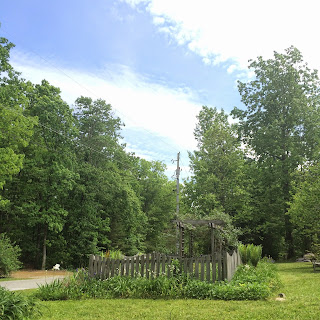Anyway, I was thinking about how I write a lot about death on here. I suppose it is just on my mind, so I write about it, but that's not all I think about. This morning I was wondering about the meaning of the word "porn" or "pornography," so, as is my practice, I looked it up in the dictionary. According to Dictionary.com the definition of "pornography" (a noun) is "obscene writings, drawings, or photographs or the like, especially those having little or no artistic meaning." If you're like me, this doesn't describe the way you experience the idea of "pornographic."
In the culture I grew up in, pornographic really only referred to anything explicitly sexual for the purpose of masturbation. Usually it's associated with graphic nudity and highly suggestive situations. While the definition may include that example, I feel like the way it is used today is not consistent with its literal definition. I've seen terms such as "#foodporn," and "#skyporn," which is ironic because those images have artistic meaning. They are examples of gorgeous skyscapes (which is not actually a word, but you know what it means) or delicious meals. The literal meaning of "pornography" doesn't apply at all.
The thing is, I don't think my Internet friends are being ironic when they use the term "porn" to describe an outstanding experience they are witnessing, but the fact they are using that term is. This is what I find fascinating about language. Language depends on how it is used. I know there is an argument in favor of preserving the literal meaning of words. I [ironically?] don't remember what that term is, but I am aware of the concept. That's just it, right? Words are supposed to represent concepts. The word didn't change and the concept didn't change, but the way we related the two did.
Warning: speculation by a lay witness ahead -
I think this happens all the time. I think it's due to a lack of education or underexposure to the concepts that the words represent, a lack of experience.
I spent a fair amount of time in my Composition II class going over vocabulary words. In class, I was dubbed "the Vocabulary Queen" by the professor, whose personality annoyed me. Nevertheless, I learned the definitions of words I was not familiar with and in that way, I feel more educated in spite of the annoying process. I was impressed by the frequency of differentiation between what I thought the word meant as opposed to what it actually meant, which was probably at least a third of the time.
Consequently, I think the issue is ignorance, a prevalent malnutrition of the mind.
If that's the problem, what's the solution?
I have a few ideas, and if you've read any of my previous posts, you're already aware of some of them. I won't repeat myself at this time, but I dare you to ponder what actions you can take and are taking to improve the situation.
Now I'll pull some weeds.
Bonne journée!




No comments:
Post a Comment